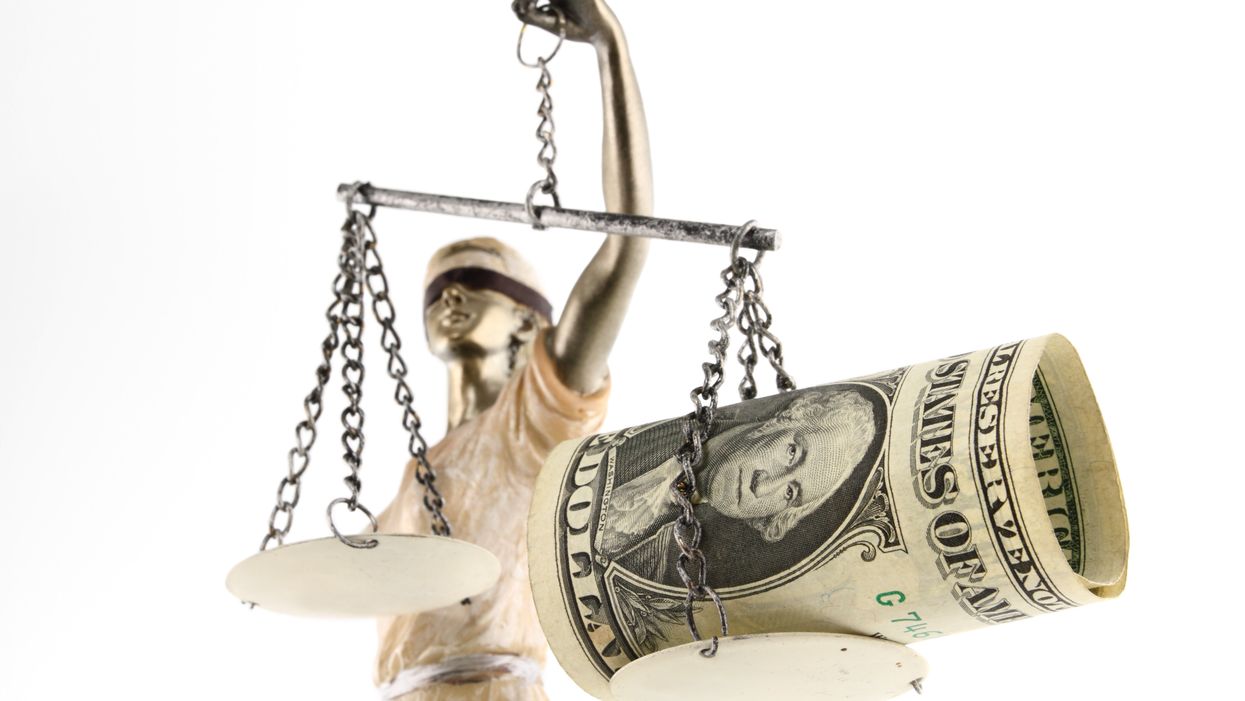Special-interest groups, many with donors the public never knows about, continued to play an outsized role in the financing of elections for state Supreme Courts across the country, a new analysis finds.
More than $39.7 million was spent on four dozen contests for seats on the top courts in 21 states last year, and 27 percent of the money was contributed by advocacy organizations allowed by state and federal laws to keep secret the identities of their benefactors. The calculation was unveiled Wednesday by the Brennan Center for Justice, which advocates for tougher campaign finance regulation and many other causes on the left side of the democracy reform debate.
By comparison, in no election during the past two decades have these so-called "dark money" organizations accounted for more than 19 percent of all spending in races for Congress.
The lack of donor transparency has the obvious potential to obscure all sorts of conflicts of interest for the justices on state Supreme Courts, who have the final say annually on litigation directing billions of dollars into corporate coffers and consumers' wallets. And, the Brennan Center wrote, it also undermines the public's confidence in state judicial systems maintaining their impartiality.
A record 40 percent of all spending on state Supreme Court contests came from special-interest groups in 2016, which was also a presidential year. Last year's drop to 27 percent was on par with the previous midterm in 2014.
About 85 percent of the special-interest spending on the judicial contests last fall, or $9.2 million, went to just four states: races for just one seat each in Arkansas, Wisconsin and North Carolina, and for a pair of seats in West Virginia. Democrats won three of the races and Republicans won two.
In both Arkansas and West Virginia, the groups accounted for more than two-thirds of total spending. Candidate fundraising and outside spending were almost equal in Wisconsin, while the candidates edged out the dark money groups in North Carolina.
The Brennan Center defined special-interest groups for its report as political action committees, 501(c)(4) nonprofits, trade associations or other groups not affiliated with a candidate or political party — saying the identities of the people filling their coffers remain largely unknown due to their "maneuvering around lax state and federal laws to the point where they rarely disclose their donors."
Eight of the 10 groups that spent the most on state high court contests in 2018 either disclosed no donor information at all or reported that 75 percent or more of their funds had come from other groups, the Brennan Center found. It labeled six groups as pushing conservative policies and four leaning more left.
This increased spending also shifted the tone of many races. The Brennan Center concluded the groups were more likely than the candidates to run negative advertising campaigns. And this kind of negative campaigning is likely to be worse in the coming presidential campaign year, when another wave of seats for state Supreme Court posts will be on ballots from coast to coast.
Unable to change campaign finance laws, at least in the short run, the Brennan Center recommends stronger ethics rules for judges to minimize conflicts of interest. "In trying times for American democracy, it is necessary to equip courts so that they can do justice and are worthy of the public's confidence," the Brennan Center wrote.




















Trump & Hegseth gave Mark Kelly a huge 2028 gift